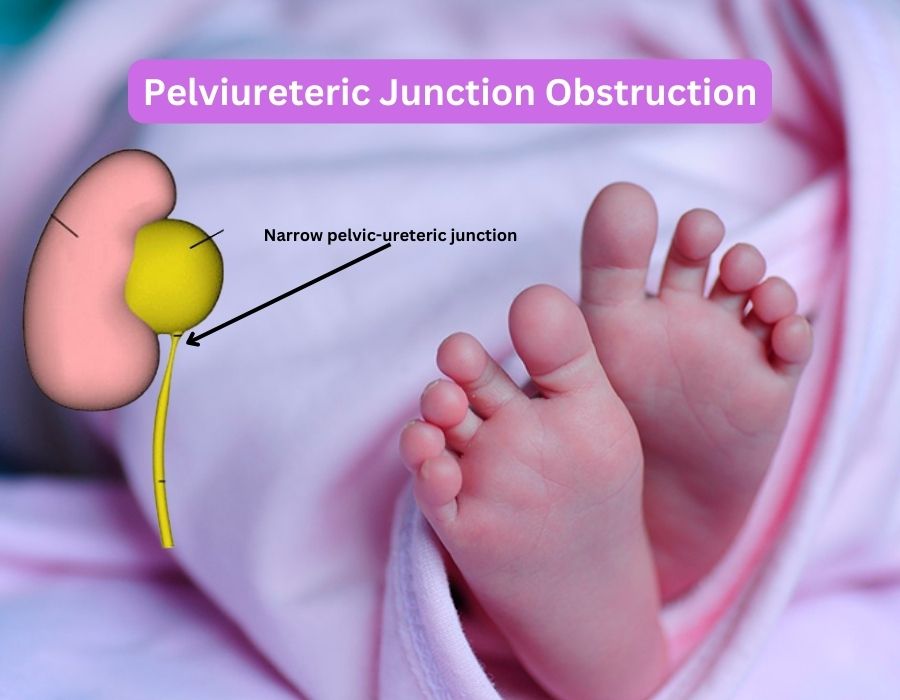Introduction
Pelviureteric Junction Obstruction (PUJO) is a medical condition that impacts the urinary system, resulting from a blockage or narrowing where the renal pelvis meets the ureter. This blog explores the causes, symptoms, and treatment approaches for PUJO.
Causes of Pelviureteric Junction Obstruction:
Congenital Causes
- Anatomical Abnormalities: Irregularities in the shape or position of the renal pelvis or ureter from birth can lead to a blockage.
- Aberrant Blood Vessels: Blood vessels near the junction may compress the ureter, causing obstruction.
Acquired Causes
- Kidney Stones: The presence of kidney stones can obstruct urine flow, resulting in PUJO.
- Infections or Inflammation: Conditions like UTIs or inflammation can scar and narrow the pelvic ureteric junction.
- Tumors: Tumors near the junction can also trigger obstruction.
Symptoms of Pelviureteric Junction Obstruction
Symptoms vary based on blockage severity, including:
- Antenatal diagnosis: Most pediatric PUJO cases are detected on prenatal scans.
- Flank Pain: PUJO patients often experience intermittent or constant lower back or side pain.
- Urinary Tract Infections (UTIs): Stagnant urine can lead to recurring UTIs.
- Nausea and Vomiting: Severe cases may cause nausea and vomiting.
- Abdominal Mass: Infants might exhibit a palpable abdominal mass, indicative of congenital PUJO.
Diagnosis
Imaging tests like ultrasound, CT scans, or MRI are used to visualize and gauge the blockage’s severity.
Treatment Options
Treatment depends on severity and age:
- Watchful Waiting: Mild cases, especially in infants, might resolve naturally as they grow.
- Medication: Antibiotics manage associated UTIs.
- Surgery: In severe or symptomatic cases of kidney obstruction, surgery is necessary. Pyeloplasty is a procedure that clears blockages and reconnects the ureter to the renal pelvis, utilizing minimally invasive or open surgical methods.
Conclusion
In conclusion, Dr. Geeta Kekre, a renowned Pediatric Surgeon specializing in robotic and laparoscopic pyeloplasty, offers expertise in treating PUJO cases. Her contributions have significantly improved the lives of patients with this condition.
For more information, guidance, or personalized care, don’t hesitate to consult Dr. Geeta Kekre.

